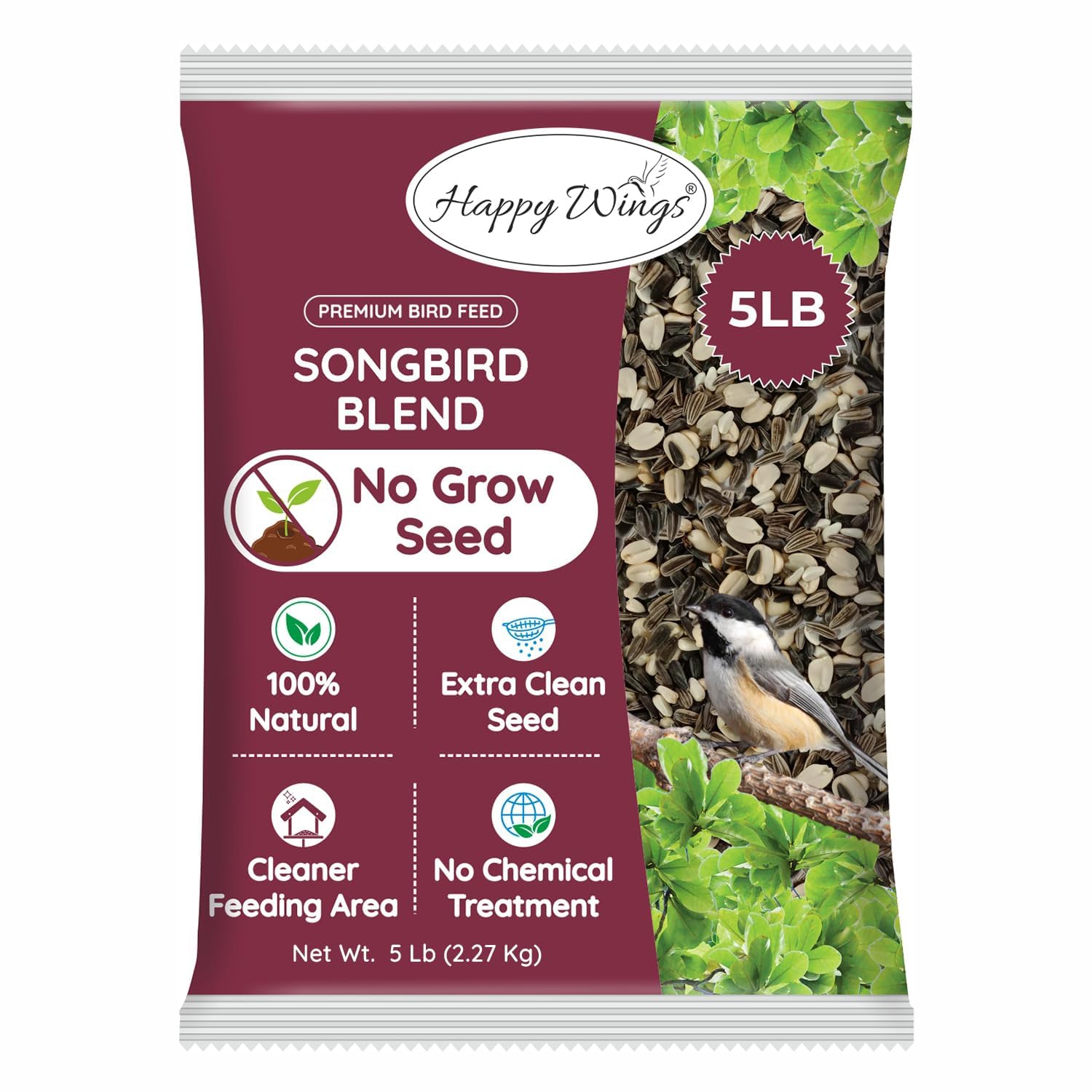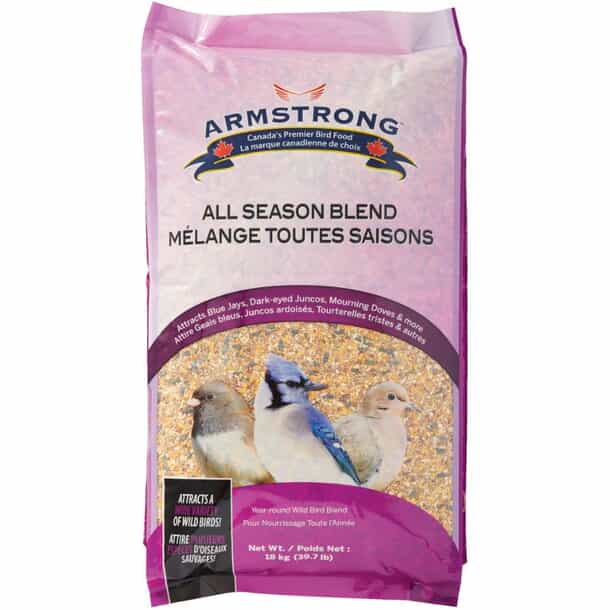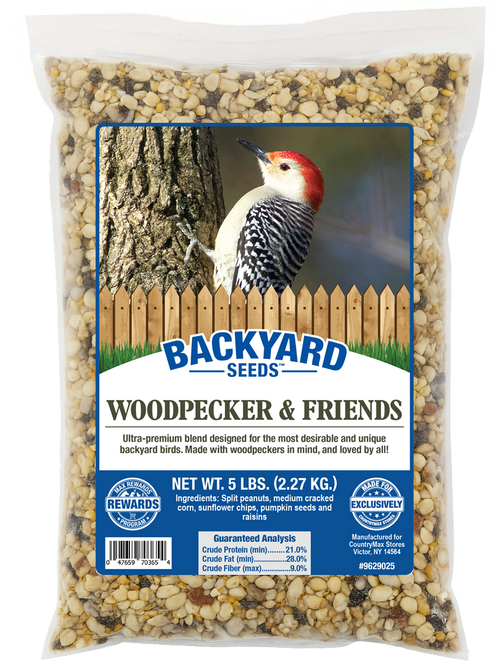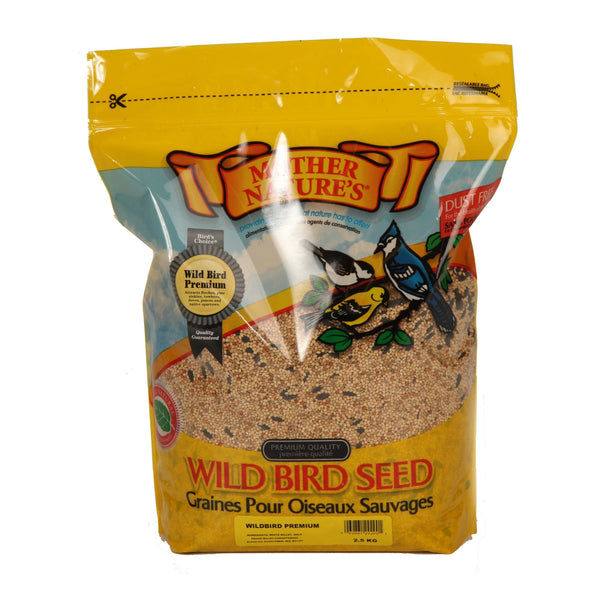Have you ever wondered what bird seed really is and why it matters so much to the birds you see outside your window? Whether you’re a seasoned bird watcher or just starting to feed your backyard visitors, understanding bird seed can make a huge difference.
The right seed not only attracts more birds but also keeps them healthy and happy. You’ll discover what bird seed is made of, which types are best for different birds, and how to choose the perfect mix for your feathered friends.
Keep reading, and you’ll soon become the go-to bird feeding expert in your neighborhood!

Credit: www.amazon.ca
Types Of Bird Seed
Bird seed is food specially made for wild and pet birds. It comes in many types to feed different birds.
Choosing the right seed helps attract more birds and keeps them healthy. Each seed type has unique traits.
Common Seed Varieties
Common seeds are the most popular for feeding backyard birds. They suit many bird species and are easy to find.
- Black Oil Sunflower Seeds: Loved by many birds for their thin shells and high oil content.
- Safflower Seeds: Good for cardinals and grosbeaks, less liked by squirrels.
- Millet: Small seeds that attract ground-feeding birds like sparrows and doves.
- Nyjer (Thistle) Seed: Tiny seeds that finches prefer, often served in special feeders.
- Cracked Corn: Attracts larger birds such as pigeons and jays.
Specialty Seeds
Specialty seeds target specific birds or offer extra nutrition. These seeds may be mixed or sold alone.
- Peanuts: High in protein and fat, enjoyed by woodpeckers and jays.
- Nyjer Seed: Often used for finches, it requires special feeders to prevent waste.
- Thistle Seed: Another name for nyjer, rich in oil for energy.
- Fruit Seeds: Some birds like parrots eat seeds inside fruits like apples or berries.
Seed Nutritional Value
Bird seeds provide energy, protein, and fats. Each seed type has different nutrition levels.
| Seed Type | Main Nutrients | Benefits for Birds |
|---|---|---|
| Black Oil Sunflower | High fat, moderate protein | Energy for cold weather, supports feathers |
| Safflower | Moderate fat, protein | Good energy, less prone to mold |
| Millet | Low fat, high carbohydrates | Quick energy, easy to digest |
| Nyjer (Thistle) | Very high fat, moderate protein | Energy-dense, supports small birds |
| Peanuts | High fat, high protein | Muscle growth, energy boost |

Credit: www.homehardware.ca
Bird Preferences
Birds have different tastes when it comes to bird seed. Their preferences depend on species and season. Choosing the right seed helps attract specific birds.
Understanding what birds like can make feeding easier and more enjoyable. Some birds prefer certain seeds over others.
Seed Choices By Bird Species
Different bird species enjoy different types of seeds. Knowing these preferences helps you pick the best seed mix.
- Sparrows:Enjoy millet and cracked corn.
- Finches:Prefer nyjer and thistle seeds.
- Cardinals:Like sunflower seeds and safflower.
- Woodpeckers:Eat suet and peanuts.
- Doves:Choose cracked corn and millet.
Seasonal Feeding Habits
Bird feeding changes with the seasons. Birds eat more high-energy seeds in winter. In spring and summer, they prefer seeds with more moisture.
| Season | Seed Preference | Reason |
| Winter | Sunflower, peanuts, suet | High energy for warmth |
| Spring | Millet, nyjer, thistle | Supports nesting and growth |
| Summer | Fresh fruits, soft seeds | Easier to digest, hydration |
| Fall | Mixed seeds, cracked corn | Build fat for migration |
Choosing The Right Mix
Bird seed comes in many types and mixes. Choosing the right one helps keep birds healthy and happy. It also attracts a variety of bird species to your feeder.
Picking a good mix means looking at what seeds are included. Some seeds give more nutrition, while others add variety. Avoiding poor-quality seeds is also important.
Balancing Nutrition And Variety
Birds need a mix of seeds to get the right nutrients. Different seeds offer proteins, fats, and vitamins. A good blend keeps birds strong and energetic.
- Sunflower seeds: high in fat and protein
- Millet: easy to eat, rich in carbohydrates
- Safflower: good fat source and less messy
- Cracked corn: provides energy and variety
- Nyjer seed: attracts small finches with high oil content
Avoiding Fillers And Unwanted Seeds
Some bird seed mixes have fillers that birds often waste. These fillers add little nutrition and can attract pests. Avoid mixes with many cheap seeds.
| Seed Type | Good or Filler? | Reason |
|---|---|---|
| Red millet | Filler | Often dropped and wasted |
| Wheat | Filler | Low nutritional value for many birds |
| Canary seed | Good | Preferred by some small birds |
| Peanuts | Good | High protein and fat |
| Cracked corn | Good | Energy source but avoid excess |

Credit: www.countrymax.com
Buying Tips
Bird seed is food for wild and pet birds. Choosing good bird seed helps keep birds healthy.
Look for certain qualities before buying bird seed. This guide helps you pick the best type.
Quality Indicators
Good bird seed looks fresh and clean. It should not have dust or broken seeds.
Check the seed mix to match the birds you want to feed. Different birds like different seeds.
- Seeds should be whole, not cracked or moldy
- Fresh seeds have a natural color without spots
- Seed mixes should not contain fillers like red millet
- Choose seeds suited for your local bird species
Packaging And Storage
Bird seed comes in bags or containers. Packaging should keep seeds dry and fresh.
Store bird seed in a cool, dry place. Use airtight containers to keep pests out.
- Look for sealed bags to avoid moisture
- Clear packaging helps check seed quality
- Keep seed away from direct sunlight
- Use containers with lids to prevent bugs
Feeding Tips
Bird seed is food made for wild birds. It helps birds get energy and stay healthy. Feeding birds can be fun and good for nature.
To feed birds well, you need to know what kind of seeds to use. You also need to keep feeders clean and safe for birds.
Best Feeders For Different Seeds
Different seeds work best with certain feeders. Using the right feeder helps birds eat easily and keeps seeds fresh.
For example, tube feeders are good for small seeds like sunflower and millet. Hopper feeders hold large seeds and mixed blends.
- Tube feeders:Best for small seeds like nyjer and millet.
- Hopper feeders:Good for sunflower seeds and mixed seed blends.
- Platform feeders:Work well for large seeds and nuts.
- Suet feeders:Designed for suet cakes, not seeds.
Maintaining Clean Feeding Areas
Clean feeding areas help keep birds healthy. Dirty feeders can spread disease and attract pests.
Wash feeders with warm water and mild soap every two weeks. Remove old seed and debris daily. Keep the ground under feeders clean.
- Use a brush to scrub feeders well.
- Rinse feeders thoroughly before refilling.
- Place feeders away from windows to prevent bird collisions.
- Clear fallen seeds to avoid mold growth.
Common Mistakes
Many bird owners make mistakes with bird seed. These errors can harm birds or waste food. Learning about these mistakes helps keep birds healthy.
Two common problems are overfeeding and choosing the wrong seeds. Both can affect birds’ diet and well-being.
Overfeeding And Waste
Giving too much bird seed causes waste and can attract pests. Birds may also eat too much and become unhealthy.
- Offer small amounts of seed at a time.
- Refill feeders only when empty.
- Clean up spilled seeds regularly.
- Store bird seed in a dry place to keep it fresh.
Choosing Inappropriate Seeds
Not all seeds are good for all birds. Some seeds lack important nutrients or may be harmful.
| Seed Type | Good For | Notes |
| Sunflower Seeds | Most Birds | High energy and popular |
| Millet | Small Birds | Easy to eat for finches and sparrows |
| Niger Seeds | Finches | Rich in oil and fat |
| Flax Seeds | Not Recommended | Hard to digest for many birds |
| Fruit Seeds | Avoid | May contain toxins |
Frequently Asked Questions
What Is Bird Seed Made Of?
Bird seed is a mix of grains and seeds like millet, sunflower, and safflower. These provide essential nutrients birds need.
Why Do Birds Eat Bird Seed?
Birds eat bird seed for energy, nutrients, and to survive, especially in winter when food is scarce.
Which Birds Prefer Bird Seed?
Finches, sparrows, cardinals, and chickadees commonly eat bird seed from feeders and natural sources.
How To Choose The Best Bird Seed?
Choose bird seed based on the birds in your area. Sunflower and millet attract many species.
Conclusion
Bird seed is essential for attracting various bird species. Choosing the right mix boosts your garden’s bird activity. Different seeds attract different birds. Sunflower seeds are popular among many species. Millet and safflower seeds also draw numerous birds. Fresh and clean seeds ensure healthy birds.
Feeding birds helps them thrive, especially in cold months. Enjoy watching your feathered visitors. Providing bird seed creates a lively, natural environment. It connects you with nature. Simple, rewarding, and educational. Start feeding today to welcome more bird songs and colors.
A little effort brings great joy.

